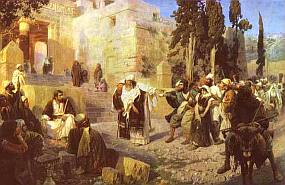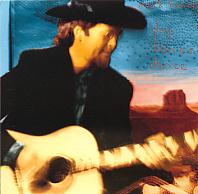 A month or so ago, I remarked to our worship leader that I realized that, at nearly 49 years of age, I’m now the eldest worship team member. He replied that I was certainly reflective of the rest of the congregation.
A month or so ago, I remarked to our worship leader that I realized that, at nearly 49 years of age, I’m now the eldest worship team member. He replied that I was certainly reflective of the rest of the congregation.
As the drummer, I have a nice vantage point from center stage. That morning, it hit me that he was right. The amount of gray hair now visible among those heads out in the pews was never before so obvious.
The week afterward, I mentioned this to a friend in his early 40s. He concurred: The average age of folks in our church was creeping upward.
Our church is planning to add two elders, with neither candidate under 50. The existing elders asked for commentary. Alarmed by this sudden realization of advancing years in our congregation, I wrote that I thought perhaps we should investigate having younger elders, if for no other reason than the “elder” elders could shepherd a few younger men as part of a torch pass. Having a younger face on leadership would certainly prove us to be at least semi-open to the input of the nonarthritic.
Over the years, I’ve been a part of several churches, each coming from a different denominational slant. My current church of the past seven years traces its lineage back to the Azusa Street revival of the early 20th century. One thing I have noticed about churches with Azusa Street ancestry is that the young people who grow up in those churches bolt the second they graduate from high school. Gone. Vamoose. A few of them marry, settle down, and then get nostalgic after their children are born and return to the fold. But for the most part, they take off and are never heard from again.
We live in a mobile society. College forces young people out of the “suffocations” of their youth and into the world. We know all the reasons why people leave a church.
But the questions of a church going increasingly gray loom large.
When I was in college back in the early 1980s, I remember trying to find a church home while at school. Every church I walked into was packed—with old people. And by old, I mean retired. I remember visiting one Lutheran church where the youngest person, other than me, was the pastor. And he had to be 60.
I’ll let you guess whether I settled at that church or not.
In my younger years, I used to think I had all the answers when it came to “fixing” churches, yet reversing an aging trend is pretty darned difficult, and I’m no longer convinced the usual “tricks” work.
So I open this one to you, readers. Other than Grecian Formula and Miss Clairol, what’s the secret to increasing the number of gray-free heads in a church that seems more and more like its filled with candidates for Geritol?


